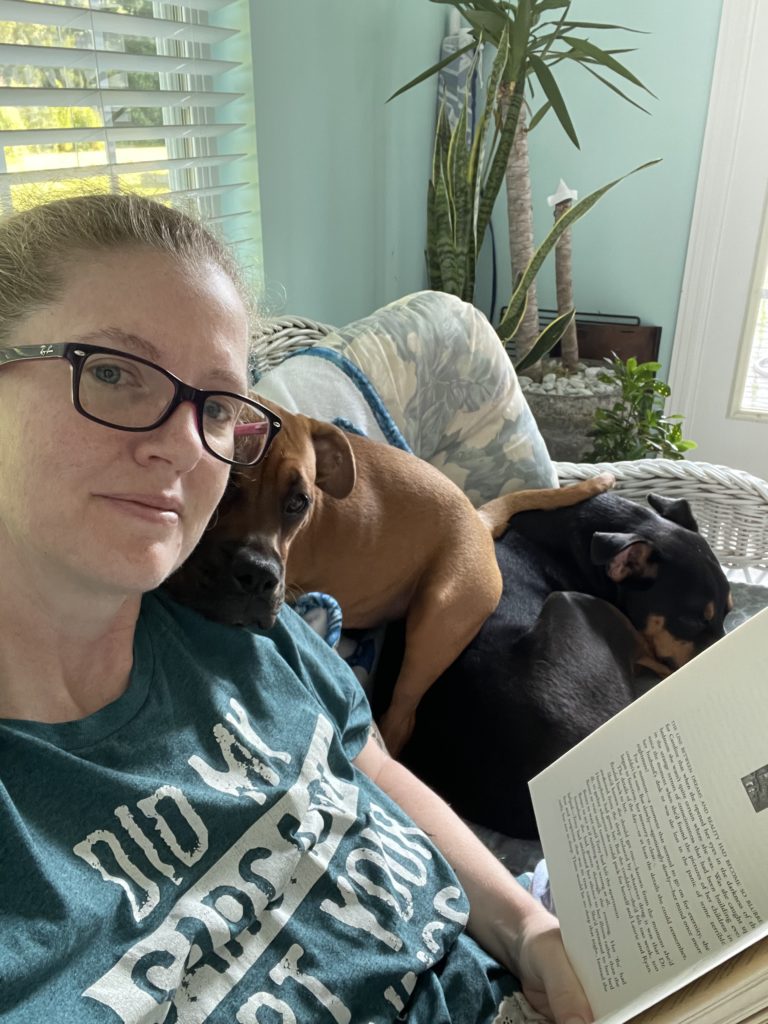With the uncertainties of a chronic illness, having a routine is an essential element. Symptoms wax and wane from hour to hour, day-to-day making plans, arrival times, and daily structure are vulnerable to spontaneous changes. Delays and cancellations occur, and the only thing reliable is unreliable. Here is why routines are important for a chronic illness.
Routine vs. Schedule
Notice I said routines are important with a chronic illness. Not schedules. Let’s clarify the difference between routine and schedule. The difference is why routines, and not schedules, are important with fibromyalgia.
Dictionary.com defines routine as “commonplace tasks, chores, or duties as must be done regularly or at specified intervals; typical or everyday activity”. It defines a schedule as “a series of things to be done or of events to occur at or during a particular time or period; a timetable”.
The major difference between schedule and routine is the time factor. A schedule is a set of activities done at a specific time. A routine is a set of activities done regularly with no specific time. Think of a schedule as a task you do at certain times such as an appointment. Think of a routine as something you habitually do in and out each day such as going to bed. A routine is free from the confines of time constraints. It allows your family to flow from one activity or task to another. This makes room for transitioning or any unplanned events without causing more stress to you or other family members.

Why Routines Are Important
Schedules, I know, are ideal for kids. The benefits of a schedule for kids are:
- more restful sleeping
- more attentive to other family members
- less whining
- more laughing
- less stress on the entire family
- more interactive with the family
- better listening
That’s a lot of benefits! But do adults get the same benefits from a schedule? Yes, they do! But do adults living with chronic illnesses get the same benefits? Not in my opinion.
Having a chronic illness means expecting the unexpected. Changes in plans will occur. Days will not go as planned. Events, no matter the preparation, will get delayed or canceled altogether. Anxiety or depression hits. A flare-up of symptoms happens without warning. That is where having a schedule becomes difficult.

Are you a parent or guardian living with fibromyalgia?
Yes? Then check out this simple digital guide Simple Tips to Being a Rockstar Fibro Parent! These tips include how your kids can help, creating a flare day kit, how to manage fibromyalgia flares, encouragment, and more.
How to Create a Routine
A good way to start creating a routine is to think about habits you and your family have at certain times of the day. These daily habits work together to make your family routine. Some considerations of what to include:
- Morning habits such as waking (allowing time for difficulty waking you and/or your kids), hygiene, eating breakfast, getting out the door for school, etc.
- Chores are completed throughout the day, which time of the day is best for your body without overexerting yourself, which days of the week you do chores, etc.
- Afternoon habits such as coming home from school, snack time, and homework assignments.
- Evening habits such as eating dinner, watching TV or other entertainment, preparing for the next school day, getting ready for bed, etc.
Our Routines Have Benefits
Routines are more beneficial when living with a chronic illness. It’s like having a schedule but without time constraints. Routines have the same benefits but with the added freedom of when you do those tasks. Having a routine will also help you get more quality sleep which is essential in living with a chronic illness. It will also help you remember to take supplements or medication as well as stretch or do a similar beneficial exercise.
For example, for my summer routine, I wake up between seven and eight each morning. I eat breakfast, drink coffee, and read while I have a quiet house when everyone is still sleeping. This is how I prepare for the day – taking it slow and easy. During this time I’ll feed the kids breakfast as they wake up one by one and get any activities they may want. I may work on my blog or do some social networking. Nothing is set in stone.
Around noon, it’s lunchtime followed by resting time. The younger one naps while the older kids choose quiet activities (electronics, reading). I either rest, read, do housework, prepare dinner, or write for the remainder of the day. This is completely dependent on my mood and how the kids and I are feeling. If no one feels up to it, then we stay home or go swimming.

Conclusion
Having a routine does not mean the kids do not get the benefits of a schedule. In a way, they have the security of knowing when and how their days will happen. They reap the benefits of a schedule while I reap the benefits of a routine. It’s a win-win situation.
Once school starts, not a whole lot will change. I will have a specific time for waking up to get the kids to school and pick them up from school. That will most likely be the only change. A routine keeps my stress levels and anxiety to a more manageable tolerance. If a flare-up occurs, there’s no schedule to worry about. Read more about how to manage flare-ups of symptoms.
In the evening when my husband gets home, it’s dinner time. Then we spend time with the kids. We talk about our days or play a board game until their bedtime between seven and eight. Then my husband and I have time together until our bedtime between ten and eleven. The weekends are more open to doing whatever. We have a routine of waking up, eating our meals, and going to bed around the same time. What we do and the times we do them are more lenient on Saturdays and Sundays.
As you can see, nothing in my day is concrete or marked by a definite time slot. I have the leisure of going with the flow of symptoms and aiding them if needed. It’s much less demanding and stressful for me and the entire family.

Pingback: Back to School with Fibromyalgia - Being Fibro Mom
Pingback: Back-to-School Struggles and Tips for Fibromyalgia Parents - Being Fibro Mom